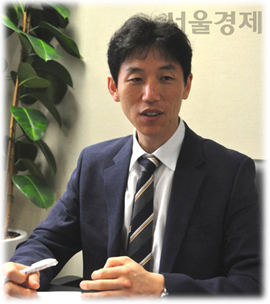| 일 | 월 | 화 | 수 | 목 | 금 | 토 |
|---|---|---|---|---|---|---|
| 1 | 2 | 3 | 4 | 5 | 6 | 7 |
| 8 | 9 | 10 | 11 | 12 | 13 | 14 |
| 15 | 16 | 17 | 18 | 19 | 20 | 21 |
| 22 | 23 | 24 | 25 | 26 | 27 | 28 |
- Mathematical Model of politics
- Cohesion Force
- Political power
- Mathematical Model of political science
- the 3rd Law of politics
- mechanism of politics
- political phenomena
- politics of Inner Circle
- the 2nd law
- Differences in Individual Abilities and Tendencies
- Political Regime
- Samjae Capacities
- political organization
- Value Systems
- Political Regimes
- politics
- Canonical Politics
- Operation of the 2nd Law
- Order of Choice
- Samjae Capacity
- 1st Law of politics
- new political science
- survival process theory
- politics and war
- Regime Change
- Orderliness of Choice
- Political Change
- Task Delegates of the Ruler: Inner Circle
- Power
- power and organization
- Today
- Total
New Political Science
a. Social Structure of Value Systems 본문
a. Social Structure of Value Systems
In political phenomena, the effect of ideological capacity is manifested through changes in the concept of 'value systems' or 'political ideas'[Def. 1.3], and when it concretely acts, it does so by stimulating emotions (mainly 'anger'). Since value systems are conceptual structures dealt with in philosophy, and emotions are a subject of interest in psychology, these elements are easily overlooked from a political perspective. Additionally, as mentioned above, they can be confused with moral values and not considered as a factor of causation, but rather perceived as grounds for advocacy, which can distort the phenomenon.
However, if you carefully distinguish between 'moral values' and 'value phenomena' and cautiously capture consistent factors that cannot be explained by armed force or the economy, you can see that the conceptual 'value system' causally operates in political phenomena. In causal effects, the value system can serve as the cause of long-term political conflicts, provoke economic effects like the vast halal food market utilized by numerous Muslims, and even influence the political cohesion within a country due to its values.
Ideological capacity is intrinsically the capacity of a specific political actor, but when examining the process in which it operates in detail, at the micro-level perspective, ideological capacity usually acts as an important condition that political actors need to consider. It can be understood as a given condition rather than the capacity of an actor. There are two important reasons for this appearance. Firstly, the actors that produced macro-level and middle-level ideological capacities have perished, so their capacities remain only as impersonal value systems shared by many people. Secondly, the macro-level and middle-level scales in ideological capacity extend far beyond the typical range (3-10 years) for understanding political phenomena, covering a much larger range (100-1000 years). This means that the rate of change in the value system, the product of ideological capacity, is also very slow. Therefore, from the micro-level perspective, the operation of ideological capacity tends to appear only as an unchanging condition.
For this reason, in the choices and actions of realistic political actors, there is no need and no ability to change someone's past ideological capacity. Instead, real-world political actors enhance their actual political capacity by utilizing the existing value systems, which are the residual ideological capacities of past figures at the micro and middle-level perspectives. The methods for doing so are as follows.
[Tab.4.16] Value Systems as Political Environments and Methods of Political Utilization
| Structure of Value System | Method of Ideological Capacity Utilization | Specific Examples | Scope of Influence |
| ㉠ Fundamental beliefs | Acquiring Legitimacy | Gaining support by conforming to fundamental beliefs | Macro- level |
| ㉡ Theoretical System | Ideological Reinterpretation | Logical rationalization using ideology | Middle- level |
| ㉢ Cultural Activities | Participation in Cultural Activities | Production, transformation, and suppression of cultural activities | Micro- level |
When examining the structure of a value system, at its core is a fundamental belief system, such as religion, while on the outermost layer, there are cultural activities such as art, culture, and hobbies. In between, there is a logical theoretical system in the form of academia. This can be illustrated as follows.

'Mechanism of Politics' 카테고리의 다른 글
| a. ㉡ Theoretical System (0) | 2023.12.18 |
|---|---|
| a. ㉠ Fundamental Beliefs (0) | 2023.12.18 |
| (3) Phenomenology of Political Ideology (0) | 2023.12.18 |
| b. ㉣ Primitive Economy and Advanced Economy (0) | 2023.12.18 |
| b. Wealth Gap (0) | 2023.12.17 |


